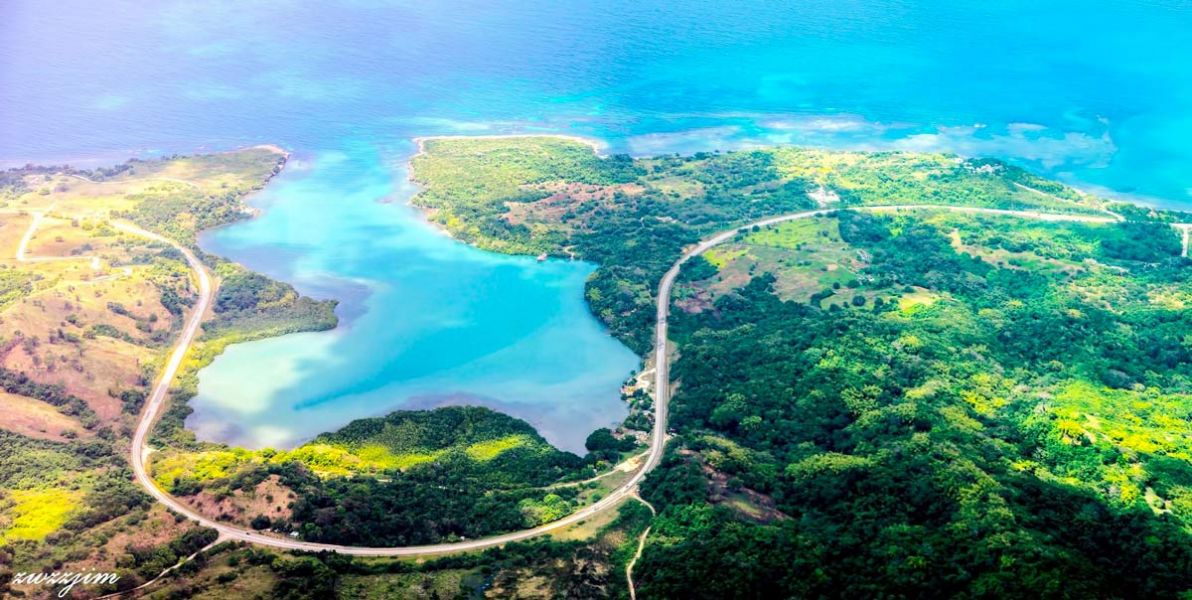
Varieties of Capital and Predistribution: The Foundations of Chinese Infrastructural Investment in the Caribbean
At a moment when many politicians and media outlets in the ‘West’ seem adamant to portray China as an antagonist to the United States eager to craft a less-than-capitalist new world order, Ching Kwan Lee’s The Specter of Global China (2017) offers a breath of fresh air. Lee’s meticulous investigation of the varieties of Chinese capital in Zambia is full of revelations. At the most basic level, her treatment of Chinese investment as a form of capital distances us from essentialist descriptions that present Chinese firms as foreign policy pawns eminently guided by the invisible hand of the Chinese Communist Party. Instead, Lee explains how Chinese construction firms operate in remarkably similar ways to contemporary forms of global private capital. Chinese state capital in Zambia’s mining sector is subject to market imperatives as well, yet eschews profit maximisation to embrace a logic of ‘encompassing accumulation’ that pursues both market profitability and state strategic goals—although the latter includes issues of resource access and political capital that can be understood as building into plans for long-term market-based economic growth. The book explores not only the logics of accumulation of firms (i.e. what drives their business decision-making) but also goes on to unpack the contingent forms of labour exploitation and managerial ethos that shape the trajectory and impacts of Chinese capital in Zambia.
In this short essay I focus on Lee’s framework of logics of accumulation to explain how her book has helped me to gain a better understanding of Chinese economic activities in Latin America and the Caribbean. Above all, Lee’s work stands out for its ability to encapsulate a complex and ambitious research agenda in a succinct question: ‘Is Chinese state capital a different kind of capital?’ (Lee 2017, 28) or, as she phrased it at a workshop in 2011: ‘What is Chinese about Chinese capitalism?’ Beyond its apparent simplicity, the question is revelatory for those of us who study Global China and who have seen our field inundated with problematic research agendas often based in normative and biased positions, such as: ‘what does China in Latin America mean for the United States?’, ‘are Chinese activities in Africa good or bad?’, or, more commonly, ‘how bad are they?’ The Specter of Global China instead offers a comparative framework that is at the same time attentive to the particularities of Chinese investments and to their embeddedness within a particular economic context in Sub-Saharan Africa.
Shifting the Focus
My own work in the Caribbean seeks answers to similar questions as those asked by Lee. However, unlike Lee in her examination of Chinese capital in the construction sector in Zambia, I am inclined to suggest that Chinese infrastructural investment in the Caribbean does represent a distinct form of capital when compared with local and transnational construction companies in the region. The key to the divergence in our interpretations is not that I unveil trends that are remarkably different to those observed by Lee. It is instead a matter of analytical perspective or scale. In her book, Lee puts her ‘first moment of comparative inquiry’ at the level of the firm, investigating how ‘two types of capital seek to accumulate’ (Lee 2017, 11). This leads to the critical insight that Chinese state capital in the mining sector has ‘imperatives that included profit making and other utilities’ (Lee 2017, 12, emphasis in the original), while Chinese state and private construction capital does not. I situate my initial inquiry earlier, investigating the moment of ‘predistribution’, or the broader societal and institutional frameworks that accompany a type of investment in the first place and which exist in symbiotic relationships with specific forms of capital.
I use the idea of ‘predistribution’ to illustrate how any form of capital requires enabling environments to prosper, and to emphasise that in the case of Chinese construction investments in the Caribbean these environments are not preexisting but established by government-to-government agreements involving Chinese diplomatic branches, policy banks, companies, and host country institutions. Jacob Hacker has described predistribution as the myriad ways in which a government ‘can shape the distribution of income and opportunity in a society that are distinct from simply taxing and providing benefits’ (Hacker 2013, 54). From this vantage point, Hacker aims to promote interventions that prevent inequality of opportunities in the market, an approach that he presents as a viable alternative to palliative remedies that seek to undo uneven market outcomes through taxes and redistribution. The term can nonetheless also be used to refer precisely to the social and institutional frameworks that foment capitalist accumulation and unequal market outcomes in the first place. The idea is not too different—albeit narrower and with a more limited focus on the state—than the feminist insight that there exist forms of care work that often pass as extra-economic but which are intrinsic to social reproduction. Drawing from this insight, my argument is that the combination of Chinese state-led predistribution through government-to-government arrangements in the Caribbean, and firm-based accumulation, adds up to a distinct mechanism of accumulation.
Caribbean: A History of (Under)development
Before discussing the particulars of these mechanisms of accumulation, it is important to recapitulate how different types of capital have been tied to specific forms of social organisation through the history of (under)development in the Caribbean. An apt example is found at the earliest stage of the Caribbean’s integration into international markets. In the seventeenth and eighteenth centuries, profit in the region was realised within a framework of imperialism and plantation economies that depended on the institution of slavery—a social configuration that brutally predistributed both unfree labour and fertile lands to European investors (Williams 1984). Following the abolition of the Atlantic slave trade in the early nineteenth century, new legal frameworks were created to facilitate the arrival of indentured labour from places like India and China, contributing to the survival of the plantation system. Whereas processes of national independence in the British Caribbean in the second half of the twentieth century were paired with attempts to escape economic dependence on Europe and North America, the latter were short-lived. The new accumulation frameworks that emerged during this period were characterised by persisting structural challenges, pressures by international investors, and the threat and reality of US-led military interventions to curtail socialist experimentation in the region (Meeks & Girvan 2010). In particular, the United States invasion of Grenada in 1983 signaled the geopolitical limits to political and economic independence.
Increasingly and since the 1980s, a wave of neoliberal policy has swept over the region—favouring the conditions for accumulation that Lee associates with a type of financialised corporation devoted to shareholder value maximisation. Predistribution to subsidise capital adopts a visibly (neo)liberal form in the contemporary Caribbean, while often perpetuating postcolonial legacies and enhancing structural constraints. This requires that whole societies commit to liberal investment regimes, flexibilisation of labour, and anti-inflationary regimes that, as Streeck (2016) explains, are in place to protect the rate of return on capital. The conventional Washington and post-Washington Consensus have engendered a context in which ongoing processes of primitive accumulation are carried out through institutional reform promoted and forced by organisations such as the International Monetary Fund (IMF). These institutional arrangements create markets and investment opportunities where before there were none, with profit to be realised by private capital. In this model there is a clear line between the formation of the overall legal-institutional framework on the one hand, and the process of production on the other.
Chinese investments in the Caribbean inevitably encounter these previously existing political economic realities, or as Lee puts it, ‘legacies of underdevelopment and struggle’ (Lee 2017, 14). The Caribbean region is particularly diverse. It includes both high-income economies such as oil and gas rich Trinidad or tourism havens like Barbados, as well as struggling economies such as debt-ridden Jamaica. However, common across the region is the relative absence of local capital eager to invest in large-scale infrastructural development or diversification away from traditional sectors. The challenges to diversification are enhanced by the small size and high degrees of liberalisation of many Caribbean economies in a context of competitive capitalism. In cases like that of Jamaica, the weakness of domestic capital is also linked to 40 years of IMF-promoted austerity that has done little to raise the country from its position as one of the most heavily indebted in the world in per capita terms (Girvan 2012). Most of the states in the region remain heavily dependent on foreign investment and assistance that until recently arrived mostly from Europe and North America.
State-coordinated Investment Partnerships: The Case of Jamaica
In this context, Chinese capital has benefitted both from low barriers to entry as well as considerable demand for infrastructural investment. The overall mechanisms of accumulation promoted by Chinese investors are nonetheless distinct in that they merge primitive accumulation with the capture of profit through government-to-government deals. These deals can be defined as ‘state-coordinated investment partnerships’ in the sense that they are complex arrangements that involve diplomatic branches of the Chinese state in negotiation with local counterparts, Chinese policy banks, and construction firms that work together to create conditions for accumulation or ‘spatial fixes’ for Chinese capital (Gonzalez-Vicente 2019; Harvey 1981). If there is anything transformative and distinct about Chinese investment in the Caribbean, it has to do with its unique approach to predistribution as facilitated by wider mechanisms of accumulation.
These mechanisms are exemplified by the North-South highway project in Jamaica. The project to create a major highway connecting Ocho Rios in the north of the island and Kingston in the south has been in place since 1999, with some phases completed by the French contractor Bouygues Construction. The project ran into technical and financial problems in the late 2000s, forcing Bouygues to abandon it. Following a visit by Prime Minister Bruce Golding to Beijing in 2009, Jamaica’s then Minister of Transport and Works Mike Henry was tasked with negotiating an imaginative arrangement with a Chinese policy bank and the China Harbour Engineering Company (CHEC) that could allow the Jamaican government to complete the project without increasing the country’s debt burden (Golding 2018). The initial contacts thus involved a large number of actors, including high-level government officials, state policy banks, and a state-owned construction company. The negotiations resulted in a 457-million-USD loan by the China Development Bank (of a total of six loans for roadworks for a value of 1.8 billion USD lent to Jamaica by both the CDB and China Exim Bank). The loan carried no broader policy conditionalities like those attached to IMF and World Bank lending, but it was agreed that CHEC would complete the project without an open call for tenders. The loan itself was repaid with the transfer of 1,200 acres of prime land in the northern and southern coasts of the island, while CHEC was granted the operation of the toll road for 50 years. In itself, this complex financial engineering is quite unique to Chinese infrastructural capital in the region. Treating these partnerships as ‘construction capital’ can be misleading, as projects like the North-South highway involve construction firms but also public policy banks (which replace the role played by private shareholders in global financialised firms), and institutional facilitators. There are hence various logics of accumulation at play within any singular infrastructure project. Together, these logics underpin a novel mechanism of accumulation.
All in all, these partnerships allow heavily indebted governments, such as the Jamaican one, to pay in kind (land, in this case, and oil, copper or cocoa in others). However, and crucially, this type of arrangement also requires spaces of exception where sovereignty is effectively circumvented to enable the realisation of profit. In the particular case of the North-South Highway, Chinese labourers brought to work in the project embodied Chinese sovereignties as they remained subject to Chinese labour law (Gonzalez-Vicente 2019). This form of ‘embodied transnational sovereignty’ entails salaries that are below the Jamaican minimum wage, and the inability to join independent unions—effectively transposing China’s exploitative labour conditions to Jamaica. Moreover, CHEC remained exempt from customs duties on equipment and machinery, as well as a number of other taxes. In sum, while CHEC could entertain profit maximisation rationales just like other transnational investors, the broader framework or mechanisms of accumulation devised around its investments in Jamaica neatly distinguish CHEC from other local and transnational investors. This is something that has not gone unnoticed in Jamaica, where local contractors have often complained that Chinese corporations benefit from unfair advantages that allow them to outcompete and displace local businesses (Kelly 2019). Indeed, the North-South Highway is just one example out of many, and the same formula or mechanism of accumulation is replicated in a number of Chinese construction projects in Trinidad and Tobago, Antigua and Barbuda, Guyana, and other Caribbean countries. Together, they attest to the distinctiveness of Chinese infrastructural capital if one places the focus of enquiry not on the firm but on the wider institutional configurations required to realise profit.
A New Framework
To conclude, I would like to add that Lee’s framework allows us not only to break the typical China-versus-the West dichotomy, but also to avoid narrowly focusing on the varying weight of the state in an investment project. Instead, it prompts us to focus on the guiding imperatives and interests that shape the behaviours and impacts of different types of investors. In fact, it would be a mistake to characterise Chinese investments in the Caribbean as particularly ‘statist’. A focus on mechanisms of accumulation allows us to see, for example, the high levels of state intervention inherent to British imperialism in the Caribbean, or to the militarily-driven neocolonial order crafted by the United States in the region following the decline of British hegemony. After all, one could hardly understand the economic success of British merchants in the West Indies or of the United Fruit Company through the broader Caribbean region without reference to the heavy hand of the British and United States governments in building political environments that facilitated exploitative economic activities. In more recent decades, many have argued that neoliberal hegemony diminished state involvement in the market, but others have called this into question (Weiss, 1998). For example, as Quinn Slobodian has noted in his study of the influential Geneva School, the aim of neoliberalism was never to reduce the power of institutions in society, but to devise a model of governance that could ‘encase the global market from interference by national governments’ subject to democratic pressures (Slobodian 2018, 20). In this way, institutions such as the IMF or the World Trade Organisation, dominated by Western economies and overwhelmingly representing the interests of capital, have enjoyed unparalleled leverage to intervene in Caribbean economies in the last four decades.
Through different stages in its history, the Caribbean has been a playground where different varieties of capital have benefitted from the combination of intervening foreign state power and entrepreneurial thrust in the quest for profit. As individual units making the best out of market opportunities, Chinese construction firms in the Caribbean follow profit-maximisation rationales that mirror those of global private investors. As part of a broader effort to create and materialise opportunities for profit, they reveal new mechanisms of accumulation that are already transforming the face of Caribbean development.





